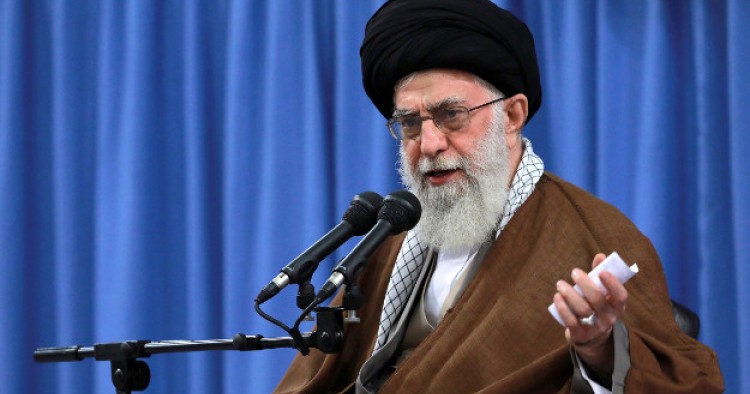Iran’s Supreme Leader Ali Khamenei has approved a set of terms and conditions for pardoning or commuting prison sentences of a number of Iranian convicts, Khamenei’s official website reported today. Judiciary Chief Sadegh Larijani had asked the Supreme Leader to review and authorize the conditions under which the Judiciary could grant clemency to certain convicts on the occasions of the birthday of Prophet Muhammad’s daughter and the upcoming Iranian New Year – which begins on March 21.
Comment: Article 110 of Iran’s constitution gives the Supreme Leader the authority to pardon or commute the sentences of convicts based on recommendation from the chief of the Judiciary. And it is customary for Khamenei, who has the last say in all state matters, to pardon prisoners ahead of national and religious days to show kindness and forgiveness. In a similar move, Khamenei agreed to pardon or reduce the sentences of 631 convicts last month ahead of the anniversary of Iran’s 1979 revolution. The convicts were mostly from Iran’s revolutionary courts, the Judiciary Organization of the Armed Forces and the State Discretionary Punishment Organization.
But Khamenei’s symbolic gesture does not placate the majority of Iranians who have been subjected to the regime’s brutal repression in the past 38 years. The Islamic Republic lacks an independent judicial system and the head of Iran’s Judiciary is directly appointed by the Supreme Leader. According to Human Rights Watch, the Iranian Judiciary and the country’s security and intelligence forces enjoy “wide powers” and are “the main perpetrators of rights abuses” in the country. Most Iranians who are tried at revolutionary courts do not have access to lawyers and their charges often are unannounced; thus it is conceivable that many of those pardoned were innocent at the first place.
Moreover, Khamenei’s clemency comes at a time when regime authorities have recently launched an aggressive clampdown on human rights activists in the country. Scores of political activists and opposition leaders are languishing in Iranian jails without trial or formal charges.
The Middle East Institute (MEI) is an independent, non-partisan, non-for-profit, educational organization. It does not engage in advocacy and its scholars’ opinions are their own. MEI welcomes financial donations, but retains sole editorial control over its work and its publications reflect only the authors’ views. For a listing of MEI donors, please click here.













